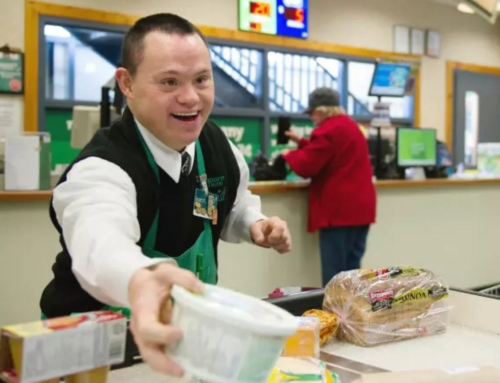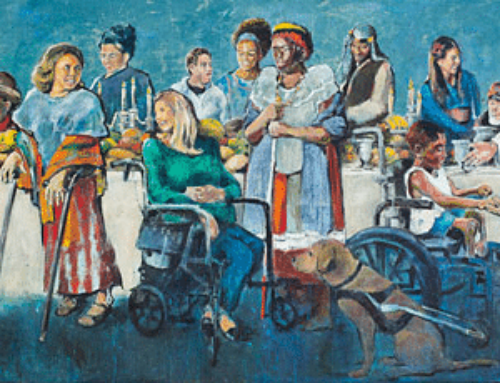
Christian Horizons is pleased to present an online caregiver workshop for families who experience disabilities with Jolene Philo, author of Sharing Love Abundantly with Special Needs Families on August 26th, 2021 from 2-3:30 pm ET! This session will be included for anyone who signs up for the Virtual Family Camp from August 25th-28th (christianhorizons.org/familycamp) or parents and caregivers can sign up for this session for only $15 CAD!
Register today at:
caregiverworkshop.eventbrite.ca
In the book Sharing Love Abundantly with Special Needs Families Gary Chapman, author of The Five Love Languages and several related books collaborates with Jolene Philo to authentically explore how concepts from The Five Love Languages are applicable and highly adaptable to the needs of families that experience disability. Special educator, author and speaker Jolene Philo shares her experience as, the child of a parent with disabilities, and later the mother of a son with disabilities. She also articulates how various biblical principles contribute to understanding children who experience disability and relate to the responsibility of parenting children with disabilities.
“We hope [these stories and ideas] encourage you to say, with deep joy and growing confidence, “Our family may never be typical, yet we are living and loving well.”
Jolene Philo and Gary Chapman
Sections of this excellent resource focus on applying a different love language in different relationships including, but not limited to the relationship between spouses who have children with disabilities; that of parents and children with disabilities; that of caregiving parents and children who do not have disabilities; that of siblings with and without disabilities, as well as relationships between families who experience disability and healthcare professionals, educators, respite service providers, etc.
Sharing Love Abundantly describes common stressors of many families who experience disability including, diagnosis, keeping up with medical treatments and therapies, and exhaustion from full-time caregiving. It provides many suggestions about how to practice the love languages amid circumstances like these. It also offers strategies to address common marital stressors, as well as common sources of grief within families that experience disability. Readers will develop awareness of how the day-to-day demands of families who experience disabilities may be like, or different from their own.

Sharing Love Abundantly includes a rich diversity of personal stories, survey tools, and information about technical aspects of caregiving such as, an overview of attachment and how this could be impacted by disability, common disabilities, and common support options like an Individualized Education Plan (IEP). The combination of personal stories, survey tools, technical explanations and faith perspectives makes this resource informative and accessible to people of various backgrounds and abilities. Specific suggestions are provided to help understand the preferential love languages of people who do not use words to communicate. It may be useful to individuals and families of all types: It can help readers with and without disabilities learn more about themselves, and their spouse or their children if applicable.
Sharing Love Abundantly is relevant to a variety of families who experience disabilities, their families, social support networks and professional support teams because the authors skillfully incorporate survey tools for family members of all ages, as well as wisdom and insights shared through interviews with several families that experience disability. These families vulnerably discuss many of the joys, struggles and challenges that they have overcome, as well as those that they continue to face. They offer hope to families and caregivers in similar situations as they express how both family lifestyle shifts and shifts in approach or mindset improved their concerns.
Readers will be encouraged to think about ways they could offer support that is meaningful to a family that experiences disability rather than that which could be perceived as tertiary, intrusive, or overbearing. Sharing Love Abundantly with Special Needs Families demonstrates that even small gestures can have significant impacts on the lives of families that experience disability.


